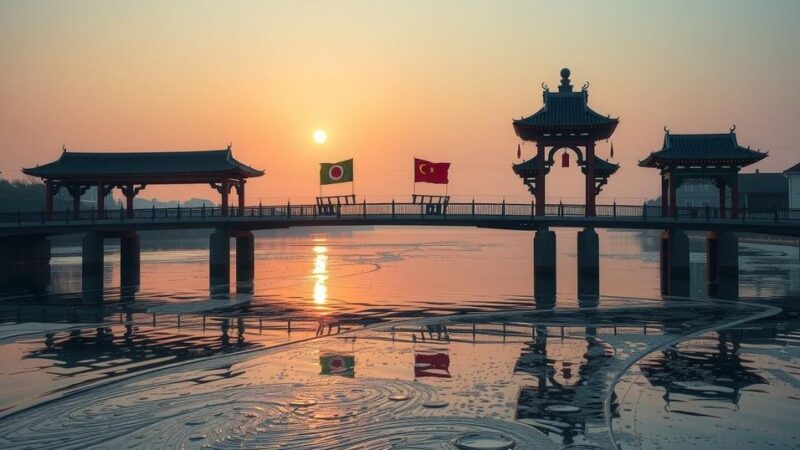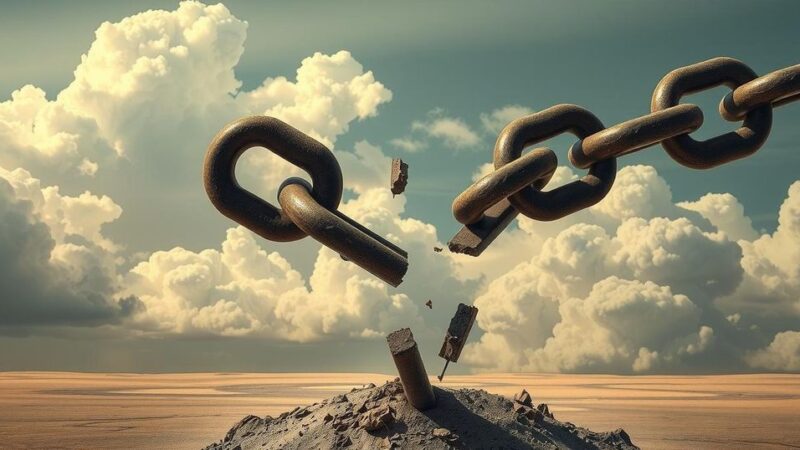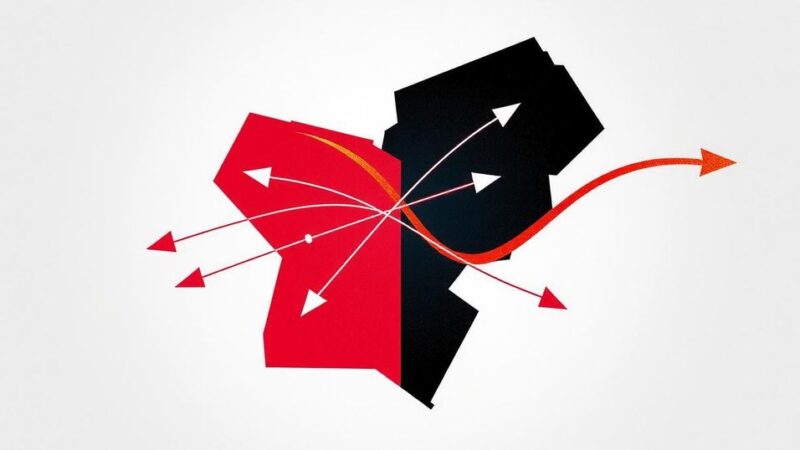The article discusses the escalating conflict in the eastern DRC, highlighting the formation of the Congo River Alliance (AFC) and its implications for regional stability. It addresses the lucrative war economy based on coltan and the intertwined strategies of military, economic, and political control employed by the M23. The emerging crisis threatens not only the DRC but the entire Great Lakes region, emphasizing the need for a coordinated and effective response to prevent further destabilization.
The conflict within the eastern Democratic Republic of the Congo (DRC) represents a geopolitical crisis that threatens to destabilize the entire Great Lakes region. Though seemingly centered around mineral control, it serves as a backdrop to deeper transnational security issues, driven by hegemonic interests, criminal networks, and foreign meddling. The establishment of the Congo River Alliance (AFC) in December 2023, under Corneille Nangaa’s leadership, marks a significant shift, merging the M23, the Action for the Dignity of the Congo and its People (ADCP), and the Twirwaneho group from South Kivu into a formidable coalition.
This coalition has significantly transformed the conflict, turning a local rebellion into a systemic risk to regional stability, which prompted U.S. Treasury Department sanctions in July 2024. The war economy in North and South Kivu feeds this conflict, where vast coltan reserves coexist with chronic insecurity. The M23, controlling the lucrative coltan trade, reportedly earns $800,000 monthly, funding its operations while exacerbating ethnic tensions related to Congolese Tutsis.
The AFC employs a tripartite strategy that intertwines military strength, economic control, and political legitimacy. Their military unit combines the M23 and Twirwaneho, using advanced technology and a well-trained force, while the ADCP cultivates a façade of legitimacy that appeals to international stakeholders. This coalition is centered around essential mining operations, further fortifying a war economy driven by illicit financial dealings.
The self-perpetuating cycle of warfare, propaganda, and economic exploitation undermines the effectiveness of sanctions and regional responses. Despite sanctions from the U.S. aimed at curtailing the AFC’s actions, the group’s influence continues to grow, linking even more closely with Central African warlords. The instability in the DRC directly affects neighboring countries like Burundi and Uganda, each facing its threats tied to the unfolding conflict.
Amid rising violence, regional security bodies like SADC and ICGLR appear ineffective in addressing the crisis. Their troops have not altered the course of the conflict, which is no longer localized but part of a larger network rooted in the DRC’s institutional failures and international mineral market demands. A coordinated response, reforming governance and foreign engagement, is essential to prevent the Kivus from becoming the spark of a larger regional conflict.
The intricate dynamics of the Great Lakes region reveal a network of complicity and inaction among regional players. While Rwanda and Uganda are often highlighted for their roles, the DRC’s weak central authority creates an environment where local and foreign armed groups thrive. The lack of a unified response has allowed the M23 to exploit ongoing rivalries, perpetuating instability in the region.
The DRC has long been at the center of geopolitical strife due to its mineral wealth and the various armed groups vying for control. The precarious balance of power within the Great Lakes region is further threatened by the rise of the M23 and its connections to foreign militias. External actors, including states and private enterprises, play significant roles in fueling the crisis through arms and economic support, complicating the already intricate geopolitical landscape. The potential for regional contagion looms, making the DRC crisis a critical focus for international stability.
The ongoing conflict in the DRC serves as a testament to the intricate interplay between regional politics, economic interests, and international involvement. The M23 and its alliances pose a severe threat not only to the DRC but to the entirety of the Great Lakes region. Unchecked, this crisis may precipitate a broader calamity, deepening existing fractures and perpetuating cycles of violence. A fundamental shift toward cooperative governance, accountability, and regional unity is essential to mitigate these risks and restore stability.
Original Source: moderndiplomacy.eu






